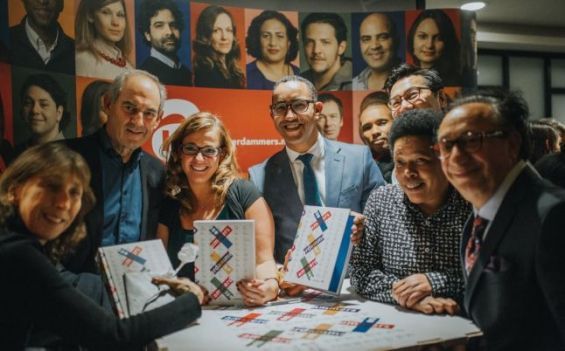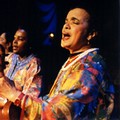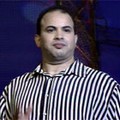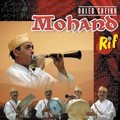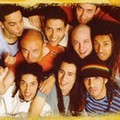180 individuals that were born in 180 countries and belong to 180 cultures are all living in one European city called Amsterdam. In a project co-founded and realized by Ahmed Larouz a Dutch social innovator entrepreneur and marketing manager, all these nationalities and cultures have been highlighted. The recently published book contains interviews and portraits of a number of Amsterdammers who are enjoying life in the host city. Born to different nations, Amsterdammers are there to prove to the world that diversity is the key to integration.
In an interview with Ahmed Larouz, Yabiladi had the chance to bring up the main objective behind such an initiative.
What is the objective and the philosophy behind this project ?
The reason why we launched this project is linked to Amsterdam’s mayor when he asked many people if they would not import the conflict we have in Palestine and Israel to the city. I was inspired by the story of Humans of New York and social media projects and at the same time I thought that if we kept talking about two different groups and excluded others, it wouldn’t work. So, I looked at the most positive thing about the city of Amsterdam, which was diversity. 180 nationalities are living in the city making it the most diverse place in the world. Then I thought that it may be better to show the world how beautiful Amsterdam is and how rich our cultures are. I tried to focus on the whole community and not only the Moroccan or Muslim community.
We collected all those people; we did the interviews and the photography. We also were provided with statistics and numbers to know exactly who is living in Amsterdam. What makes this project very complicated is that the people we interviewed had to be born in their countries of origin. For example, we had more than 10 thousand Moroccans living in Amsterdam but we are not interested in all of them, only those who were born in Morocco.
Is the project then about their journey becoming part of Amsterdam as they weren’t born there ?
Indeed, it is about what makes them a satisfied citizen in Amsterdam and what is their connection with it. We searched all over social media, did interviews, portraits and we collaborated with a daily newspaper called Parool. We had an exhibition in one of the largest libraries in Amsterdam, and in a museum. We also organized 180 activities to connect people together. The latter will take a year and a half, I think we currently managed to reach 100 activities. So it is not a project that relied only on the release of the book, on the contrary, it is a way of realizing how rich those cultures are and how rich Amsterdam is made by different cultures.
Your project was inspired by the political crisis that arised in Gaza but it is also there to convey a message regarding the rise of nationalist politicians. Do you really consider the book as a way of addressing these politicians ?
It is not just a political message but also a social and economic one because you want to make people realize that they are in a safe, human, and comfortable environment where they can be creative and free to express who themselves. We are not the only ones dealing with these conflicts, far right politicians are all over the world. However, the question here is what is the added value that would make Amsterdammers believe in them. It doesn’t have always to do with the political issues that we are living through because Europe is dealing with it. The most important thing is that we have this beautiful city where everybody is proud to be an Amsterdammer. We are trying to combat prejudice with this book.
Who contributed to the realization of this project ?
The team is bigger than what we thought it would be because the first time we came out with the idea, I had a partner. The person was Jewish, I was a Muslim and we thought of working with that perspective in mind. Yet, when we started, everybody was interested in our idea so in a very short time it became bigger and everybody was involved in it. I managed to - of course due to my background dealing with multicultural issues and diversity issues- deal with it, but I was also driven by marketing considerations and the imperative of developinh the project to a higher level. When we talk about integration, most of the time, people tend to allocate lower budgets. For our part, we tried to do it with good and valuable means bringing the best designers, interviewers, and journalists. We made it as big as it ought to be, I hope that other cities will be eventually inspired by our project. I am proud of it.





 chargement...
chargement...




